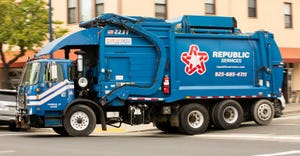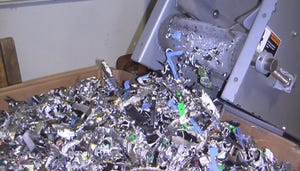management: How To Reduce UST Cleanup Costs
October 1, 1997
Patti Verbanas
All underground storage tanks (USTs) are not created equal. The strict standards governing cleanup that are based mainly on worst-case scenarios serve as an expensive catch-all for sites scrambling to meet 1998's deadline for upgrading, replacing or closing existing systems.
However, doing a little homework on costs and new regulations before buying equipment or hiring a specialist could lessen the bite on your budget.
A survey from Environmental Information (EI), Minneapolis, reports that more than half of USTs have yet to be upgraded. But, as far as expense is concerned, procrastination might pay off for these delinquent sites as risk-based corrective action (RBCA) is implemented state-by-state.
"RBCA certainly has sent a message to the people responsible for these cleanups that if they wait, they may have the opportunity to benefit by a risk-based approach," notes EI's president, Cary Perket.
RBCA is based on the belief that some sites pose a lesser environmental risk and calls for a more individual cleanup approach. The remaining leaking UST cleanup market is worth $20 billion, a cost that quickly is being diluted as states adopt RBCA, according to EI. Currently, more than 20 states have begun this tiered-approach to developing site-specific cleanup standards that EI estimates could save about $7 billion in clean-up costs.
Chances are, your site could cash in on these savings. For example, officials in California estimate that the portion of UST sites eligible for risk-based closure will jump from 1 percent in 1994 to 60 percent by 1998.
However, expect difficulty in employing risk assessment, site characterization, soil boring and well installation services. "There is still a lot of work to do by the end of next year, and I don't believe that it's going to get done," Perket says.
So, what can you expect to pay to keep in compliance? According to the U.S. Environmental Protection Agency (EPA), actual costs will vary by factors such as site, downtime, labor, vendors and the proximity to the deadline. However, it estimates that replacing an existing three-tank facility with three new USTs and piping would "cost roughly between $80,000 and $100,000, assuming no cleanup is needed."
For such a replacement, expect two to three weeks of downtime.
If you choose to add spill, overfill and corrosion protection to an existing UST, the EPA gives the following approximate costs - including labor and a maximum of 24 hours downtime - based on a three-tank facility:
* $1,200 for three spill buckets;
* $1,500 for automatic shutoff (butterfly) devices;
* $5,000 for automatic overfill alarm;
* $300 for three ball float valves;
* $15,000 for interior lining; and
* $10,000 for impressed current system, including assessment.
Temporarily closing a UST will cost no more than the required monitoring. If you opt to close a UST permanently and decide to leave the tank in place, it must be empty of fuel, cleaned and then filled with an inert solid. Permanent closing costs fall between $5,000 and $11,000, according to the EPA.
Acquisitions American Disposal Services, Burr Ridge, Ill., has purchased the outstanding stock of the Fred B. Barbara Companies, reportedly one of Chicago's largest remaining independent solid waste service providers, for a total initial payment of more than $58 million.
Sweden-based Svedala Recycling Division, has acquired Lindemann Recycling Equipment Inc., Pineville, N.C.
Eastern Environmental Services Inc., Mt. Laurel, N.J., has acquired certain assets and real estate from Clean Ventures Inc. and PJ's Environmental Services to operate a transfer station, permitted to accept municipal solid wastes and construction and demolition wastes, in Brooklyn, N.Y.
Abbot Tachograph, Pine Bluff, Ark., has acquired the Automate Fleet Management System product line from TeamNet Inc., Dayton, Ohio.
You May Also Like


